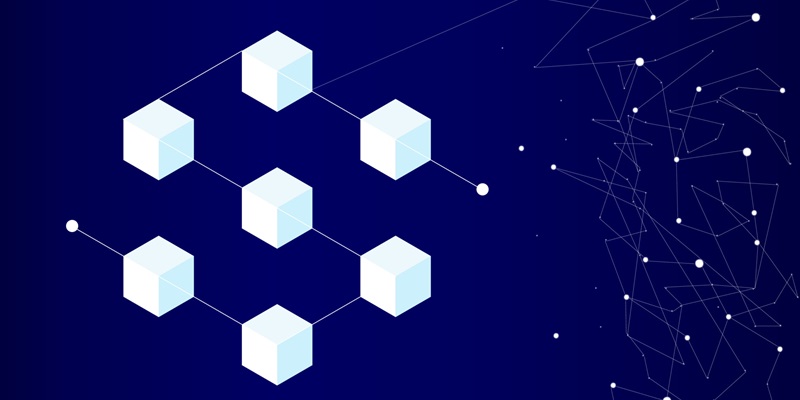The intersection of artificial intelligence (AI) and blockchain technology has opened up numerous possibilities for improving distributed computing. In this article, we will explore the multifaceted role of AI in enhancing the efficiency, accuracy, fault tolerance, privacy, security, and energy consumption of blockchain and distributed computing systems. Additionally, we will delve into the importance of interoperability and the promotion of fairness and inclusivity in the integration of AI algorithms.
Enhancing Efficiency and Accuracy
AI algorithms have the remarkable ability to analyze vast amounts of data, identify intricate patterns, and make accurate predictions. This capability can greatly enhance the efficiency and accuracy of blockchain networks. By leveraging AI, blockchain systems can automate various processes, such as smart contract execution and consensus mechanisms. As a result, transactions become faster and more reliable, reducing the need for manual intervention and increasing overall efficiency.
Automation of Processes
The integration of AI into blockchain and distributed computing systems enables the automation of numerous processes. For instance, smart contract execution can be improved through the use of AI algorithms. By automatically executing smart contracts based on predefined conditions, time-consuming manual interventions are eliminated, ensuring faster transaction execution. Similarly, consensus mechanisms can be automated using AI algorithms that employ machine learning techniques to reach consensus quickly and efficiently.
Fault Tolerance and Uninterrupted Operation
An essential aspect of distributed computing is fault tolerance. AI-powered distributed computing can significantly enhance fault tolerance by automatically detecting and mitigating failures. By continuously monitoring the system, AI algorithms can proactively identify potential errors or performance issues and take corrective measures to ensure uninterrupted operation. This resilience can be invaluable in a distributed environment where faults can occur at any time.
Privacy and Security Concerns
While the potential of AI in blockchain and distributed computing is immense, privacy and security concerns arise due to the highly sensitive nature of data. Protecting data privacy is crucial, considering the decentralized nature of these systems. To address this issue, researchers are exploring techniques such as federated learning. This approach allows AI models to be trained on decentralized data without exposing or compromising individual privacy, ensuring data security while reaping the benefits of AI.
Federated Learning for Privacy Preservation
Federated learning enables the training of AI models without transferring raw data to a centralized server. Instead, the model is distributed across multiple devices or nodes, which collectively learn and improve over time. This federated approach ensures privacy preservation while benefiting from the collective intelligence of the network. By allowing AI algorithms to remain within their respective nodes, data remains localized and individual privacy is upheld, making it a promising solution for privacy concerns in blockchain and distributed computing.
Energy Consumption Challenges
One of the significant challenges associated with AI-powered blockchain and distributed computing systems is energy consumption. Deep learning models, in particular, require substantial computational resources and energy to train and execute. To address this challenge, researchers are actively working on developing energy-efficient AI models. By optimizing algorithms, reducing unnecessary computations, and leveraging hardware optimizations, they aim to reduce the energy footprint of AI algorithms used in distributed computing systems.
Developing Energy-efficient Solutions
In addition to optimizing AI algorithms, researchers are also exploring renewable energy sources to power blockchain and distributed computing systems. By harnessing solar, wind, or other renewable energy sources, the environmental impact of these systems can be minimized. Collaboration between researchers, developers, and energy providers plays a crucial role in finding sustainable solutions that balance the computational requirements of AI with the need for energy efficiency.
Importance of Interoperability
Interoperability is essential when integrating AI with blockchain and distributed computing systems. As AI technologies advance, it becomes increasingly important for these technologies to seamlessly interact with blockchain networks. Ensuring interoperability entails developing standardized protocols and interfaces that enable the efficient exchange of data and services between AI algorithms and blockchain systems. This interoperability fosters the integration of AI and blockchain, unlocking the full potential of both technologies.
Ensuring Fairness and Inclusivity
While integrating AI with blockchain and distributed computing, it is crucial to ensure fairness and inclusivity. AI algorithms heavily depend on the quality and diversity of data they are trained on. To avoid bias and discrimination, it is essential to train AI algorithms using diverse and representative datasets. Fairness and inclusivity must be considered throughout the development process to prevent perpetuating existing biases and to provide equal opportunities and benefits to participants in the blockchain ecosystem.
The role of AI in blockchain and distributed computing systems is multifaceted and transformative. By enhancing efficiency, accuracy, fault tolerance, privacy preservation, and energy efficiency, AI brings numerous benefits. However, addressing the challenges related to privacy, security, energy consumption, interoperability, fairness, and inclusivity is crucial for the sustainable integration of AI in these systems. As researchers and developers continue to explore innovative approaches, combining the power of AI and blockchain promises to revolutionize the world of distributed computing, paving the way for a more efficient, secure, and inclusive digital future.

